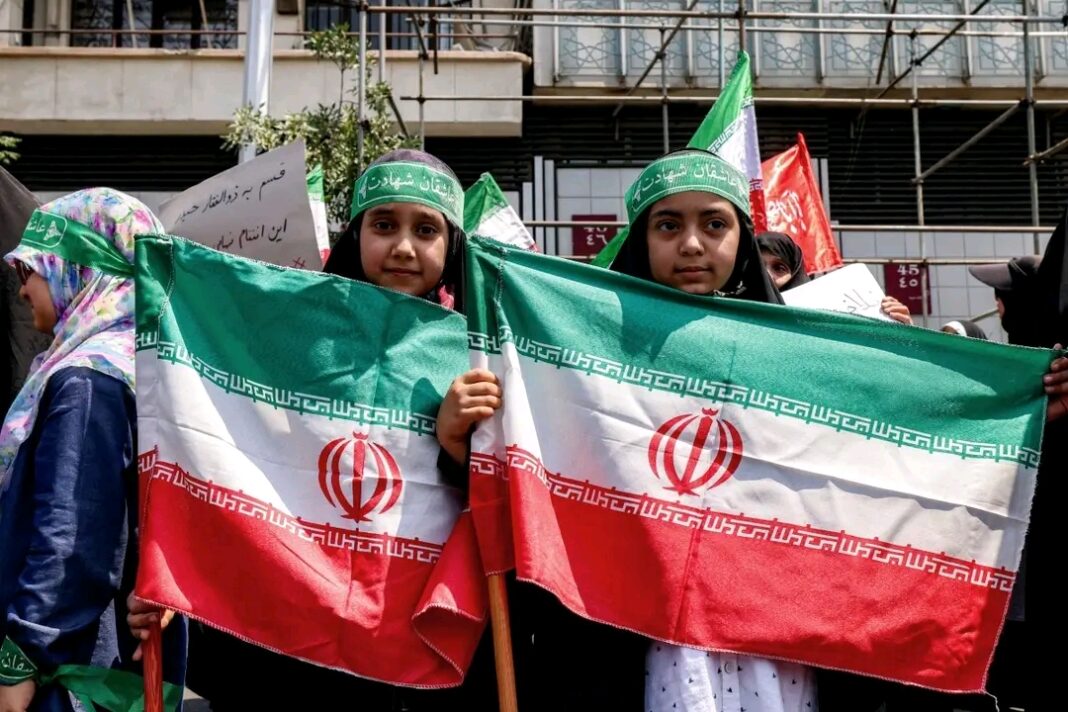Tehran has threatened severe retaliation following U.S. airstrikes on Iranian nuclear facilities, escalating the Iran-Israel war as it enters its 11th day.
Amid ongoing aerial attacks, air raid sirens blared across Israel. Explosions were reported in Jerusalem as Israeli forces targeted missile sites in western Iran and six military airports, destroying jets and helicopters.
U.S. President Donald Trump claimed responsibility for strikes on nuclear sites in Fordo, Isfahan, and Natanz, boasting they had “obliterated” Iran’s nuclear capabilities with “bunker buster” bombs. However, officials cautioned that the true impact on Iran’s nuclear program remains unclear.
Iranian Armed Forces spokesman Ebrahim Zolfaghari condemned the U.S. intervention, warning that it would “expand the war across the region.”
“The fighters of Islam will deliver serious, unpredictable consequences through powerful, targeted operations,” he said on national television.
The strikes rattled global markets, with oil prices surging over 4% early Monday. China urged de-escalation, warning of broader economic fallout. Oman, traditionally a mediator in U.S.-Iran nuclear talks, condemned the strikes and called for restraint.
Iran’s foreign ministry accused the U.S. of sabotaging diplomacy.
“Future generations will remember that Iran was in negotiations with a country that is now at war with us,” said spokesman Esmaeil Baqaei.
European leaders urged Tehran to avoid further destabilization. Supreme Leader Ayatollah Ali Khamenei called Israel’s bombing campaign, launched on June 13, “a grave mistake.”
Trump Flirts with ‘Regime Change’
While the Pentagon distanced itself from regime change, Trump leaned into the idea.
“If the current Iranian Regime can’t MAKE IRAN GREAT AGAIN, why wouldn’t there be a regime change?” he wrote on Truth Social.
He claimed that U.S. strikes had caused “monumental damage,” though no satellite images were provided to support the statement.
U.S. General Dan Caine confirmed extensive destruction at all three nuclear sites targeted. Israeli Prime Minister Benjamin Netanyahu said Israel was nearing the completion of its objective to dismantle Iran’s nuclear and missile capabilities.
Casualties and Global Reaction
Iran’s health ministry reported over 400 deaths from Israeli strikes, while Iranian attacks have killed 24 in Israel.
IAEA Chief Rafael Grossi told the UN Security Council that while the Fordo site suffered visible craters, the full extent of underground damage remains unknown.
“Armed attacks on nuclear facilities must never occur,” Grossi said.
Iran’s Foreign Minister Abbas Araghchi, en route to a meeting with Russian President Vladimir Putin, accused Washington of “blowing up” nuclear diplomacy.
Though Russia condemned the attacks, it has stopped short of offering military support and has downplayed a recent strategic agreement with Iran. Meanwhile, Russia, China, and Pakistan have submitted a draft UN resolution calling for an immediate ceasefire.
Public Sentiment and Domestic Response
In Tehran, demonstrators rallied against U.S. and Israeli aggression. In Semnan, far from the attack zones, residents expressed alarm.
“Even though we’re far from the nuclear sites, I worry deeply for the people near them,” said Samireh, a 46-year-old housewife.
Iranian President Masoud Pezeshkian accused the U.S. of aiding Israel’s war effort and vowed a strong response.

